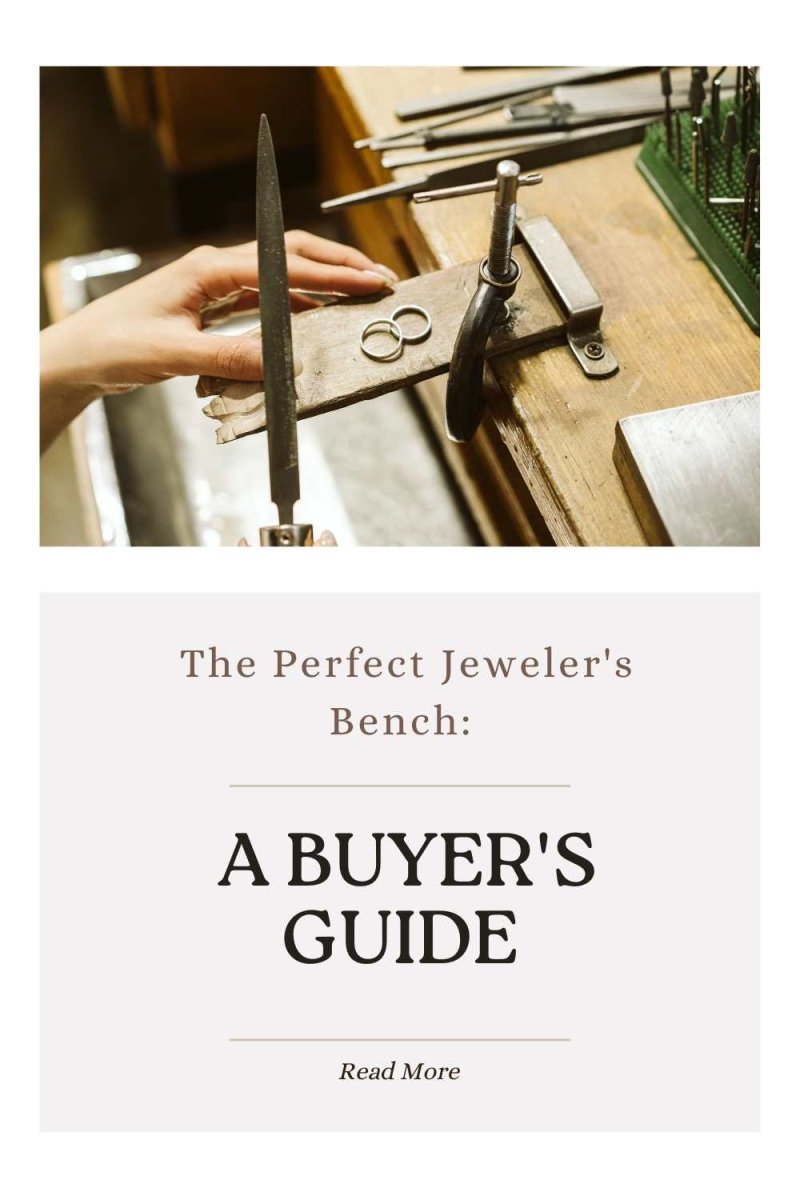
Choosing the Perfect Jeweler's Bench: A Buyer's Guide
A jeweler's bench is the heart of any jewelry workshop. It's where the magic happens, and having the right one can make a big difference in your work. Let's look at what you need to know to pick the best bench for you.
Key Takeaways
| Aspect | Consideration |
|---|---|
| Importance | 87% of jewelry pros consider it the most crucial equipment |
| Efficiency | Can increase productivity by up to 30% |
| Key Features | Stability, proper height, storage, work surface design |
| Types | Traditional wooden, metal, custom-built |
| Price Range | £300 to £5,000+ |
1. Why Your Bench Matters
Think of your jeweler's bench as your office desk, but for making beautiful jewelry. It's where you'll spend most of your time, so it needs to be just right. In fact, 87% of jewelry pros say it's the most important piece of equipment they have. A good bench can help you work better and faster, and even keep you from getting sore or tired.
When you're looking at benches, remember that the right one can make you up to 30% more efficient in your work. That's like getting an extra two hours in a workday! Plus, if it's set up correctly for your body, it can boost your productivity by 25%. That's why it's worth taking the time to choose carefully.
Consider the long-term impact of your bench choice. A well-designed bench can reduce physical strain, potentially preventing repetitive stress injuries that could affect your career longevity. It's not just about comfort; it's about sustaining your craft for years to come.
Check out our jewelry tools and supplies to get started on your jewelry-making journey.
2. Key Features to Look For
When you're shopping for a jeweler's bench, there are some important things to keep in mind:
- Stability: 95% of jewelers say this is super important. You don't want your work surface wobbling while you're trying to set a tiny stone!
- Height: The ideal height is between 39-42 inches. This helps you sit comfortably and avoid back pain.
- Materials: Solid hardwood is the way to go. It's tough and lasts a long time.
- Storage: Look for benches with 3-5 drawers and 2-3 shelves. You'll need space for all your tools and materials.
- Work surface: About 78% of benches have a semi-circular cutout. This lets you get close to your work.
- Durability: Consider benches made from materials that can withstand daily use and resist damage from tools and chemicals.
- Adjustability: Some benches offer height adjustment or tilting work surfaces, which can be beneficial for different tasks and body types.
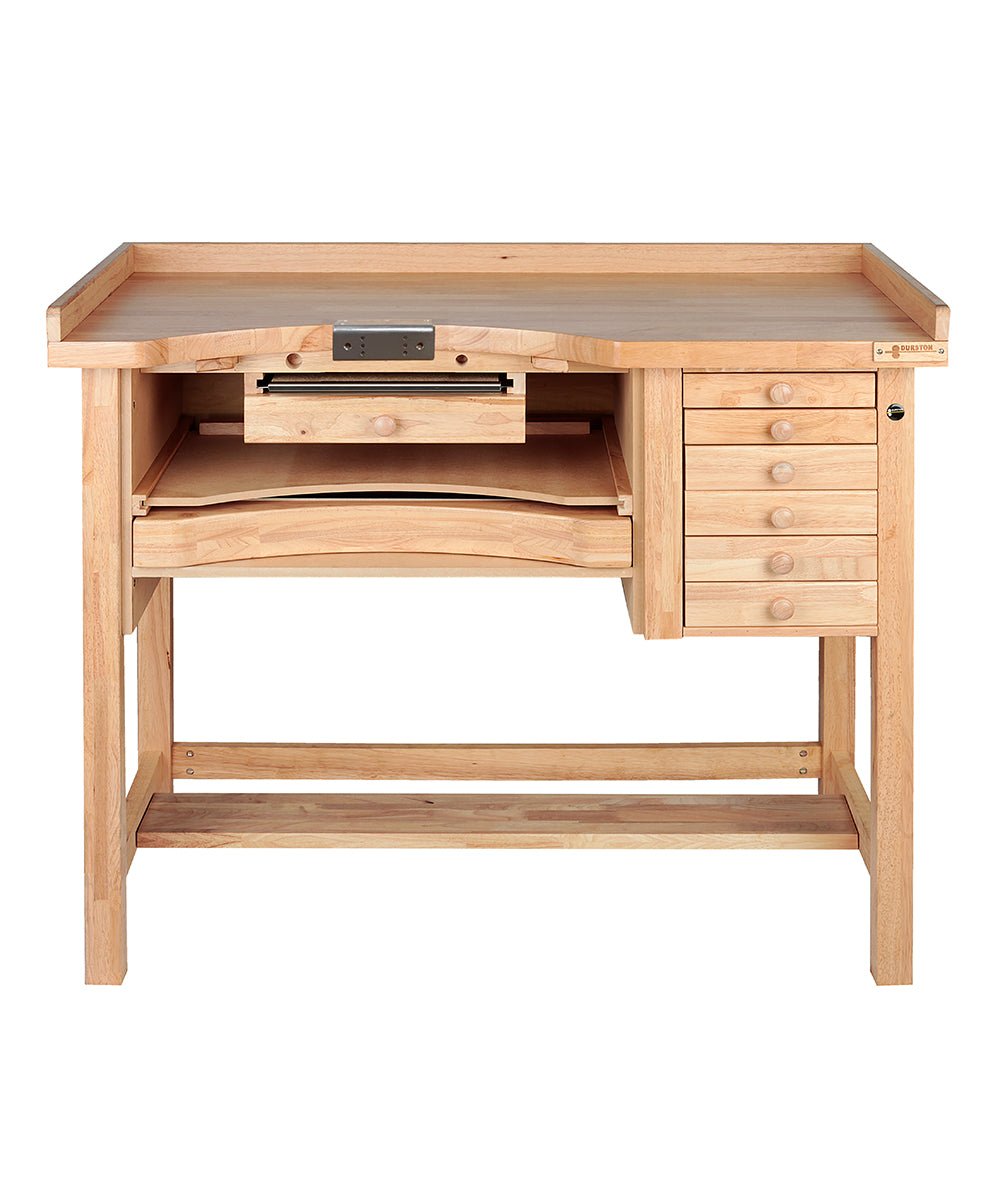
This Durston Superior Jeweller's Bench has many of these key features, making it a great choice for both beginners and pros. Its solid construction and thoughtful design exemplify what to look for in a quality bench.
Learn more about essential jewelry-making equipment to complement your new bench.
3. Types of Jeweler's Benches
There are a few main types of benches to choose from:
Types of Jeweler's Benches
Wooden benches are the most popular because they're sturdy and look nice. They offer a classic feel and can be easily customized. Metal benches are great if you need something super tough. They're often preferred in industrial settings or for heavy-duty work. Custom benches are perfect if you have special needs or want something unique. They can be tailored to your specific work style and space requirements.
When choosing between these types, consider your work environment, the types of jewelry you create, and your personal preferences. For instance, if you work with acids or harsh chemicals, a metal bench with a protective coating might be more suitable than a wooden one.
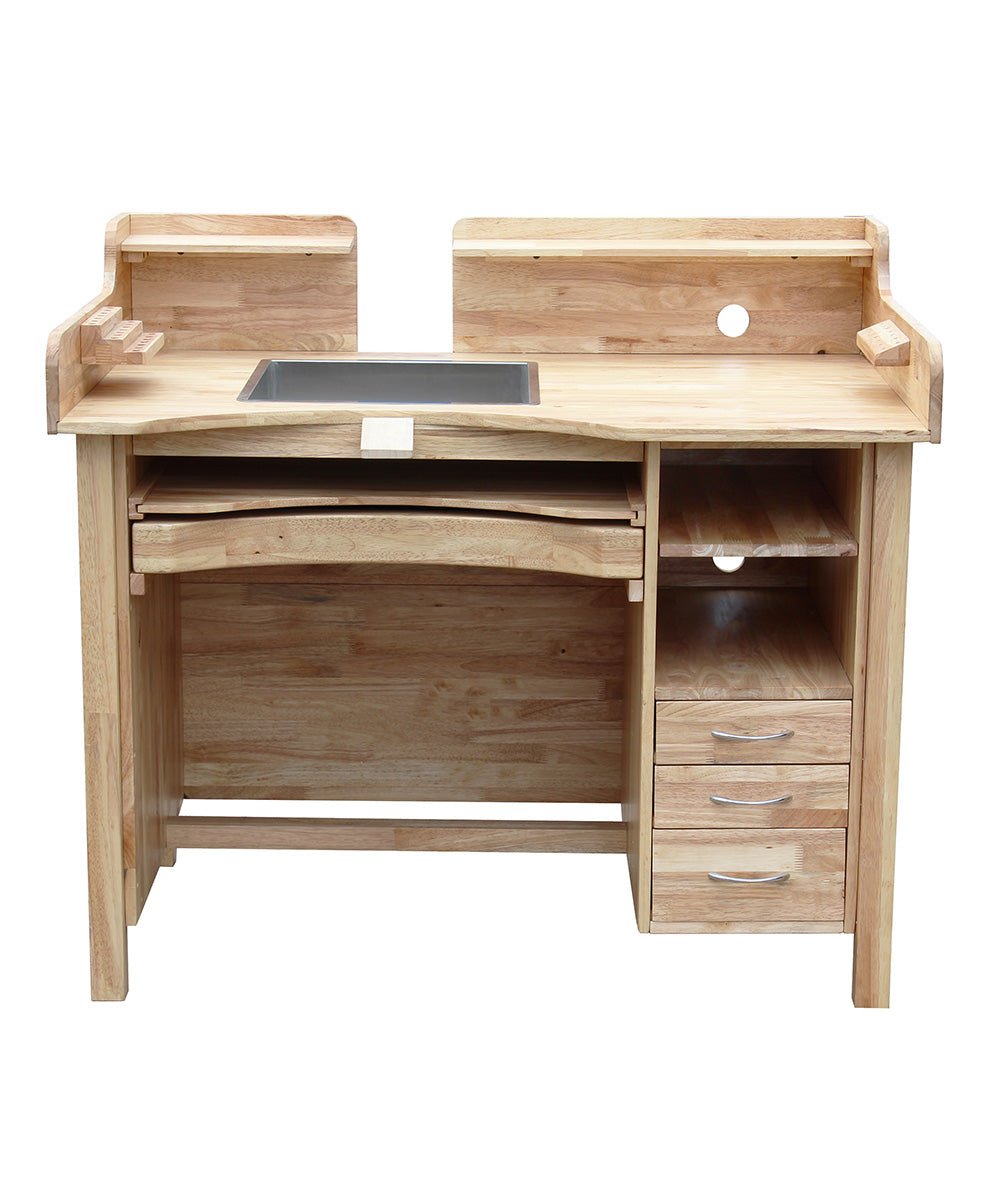
The Durston Setter's Bench is a specialized type, perfect for detailed stone setting work. Its design focuses on providing optimal support and stability for precision tasks.
4. Setting Up Your Workspace
Your workspace needs to be just right for you to do your best work. Here are some tips:
- Work surface: You need at least 2 feet by 3 feet of space to work comfortably. This allows for ample room to spread out tools and materials.
- Lighting: 92% of jewelers say good lighting is crucial. Look for benches with built-in lights or spots to attach them. Consider both overhead and task lighting to reduce eye strain.
- Wet and dry areas: 75% of pros recommend keeping your "wet" work (like polishing) separate from your "clean" work (like setting stones). This prevents contamination and keeps your workspace organized.
- Ergonomics: Arrange your tools and materials within easy reach to minimize repetitive movements.
- Ventilation: Ensure proper airflow, especially if you work with chemicals or do soldering. This is crucial for your health and safety.
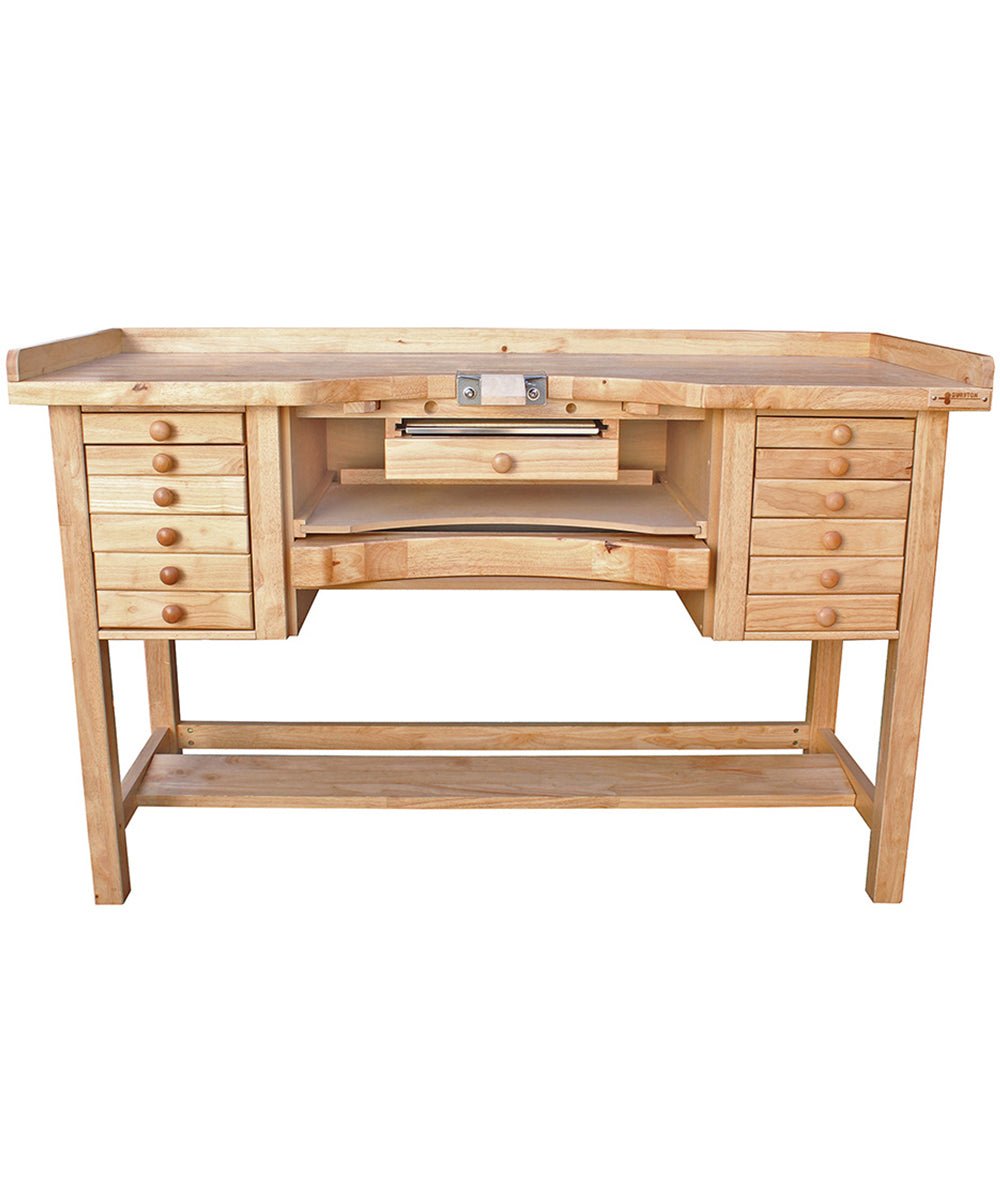
A double workbench like this Durston model gives you plenty of space to separate different types of work. It's ideal for jewelers who need distinct areas for various processes or who collaborate with others.
5. Comfort and Productivity
Being comfortable at your bench isn't just nice - it helps you work better. Here's why it matters:
- Good posture can make you 25% more productive. That's like getting an extra 2 hours in an 8-hour day!
- Look for adjustable features. Everyone's body is different, so your bench should fit you.
- Don't forget about your chair. A good seat is just as important as a good bench.
- Consider ergonomic accessories like wrist rests or foot stools to further enhance comfort.
- Take regular breaks to stretch and move. Even with the best setup, prolonged sitting can be detrimental to your health.
Investing in comfort is investing in your craft. A comfortable workspace leads to longer, more focused work sessions and can significantly improve the quality of your output.
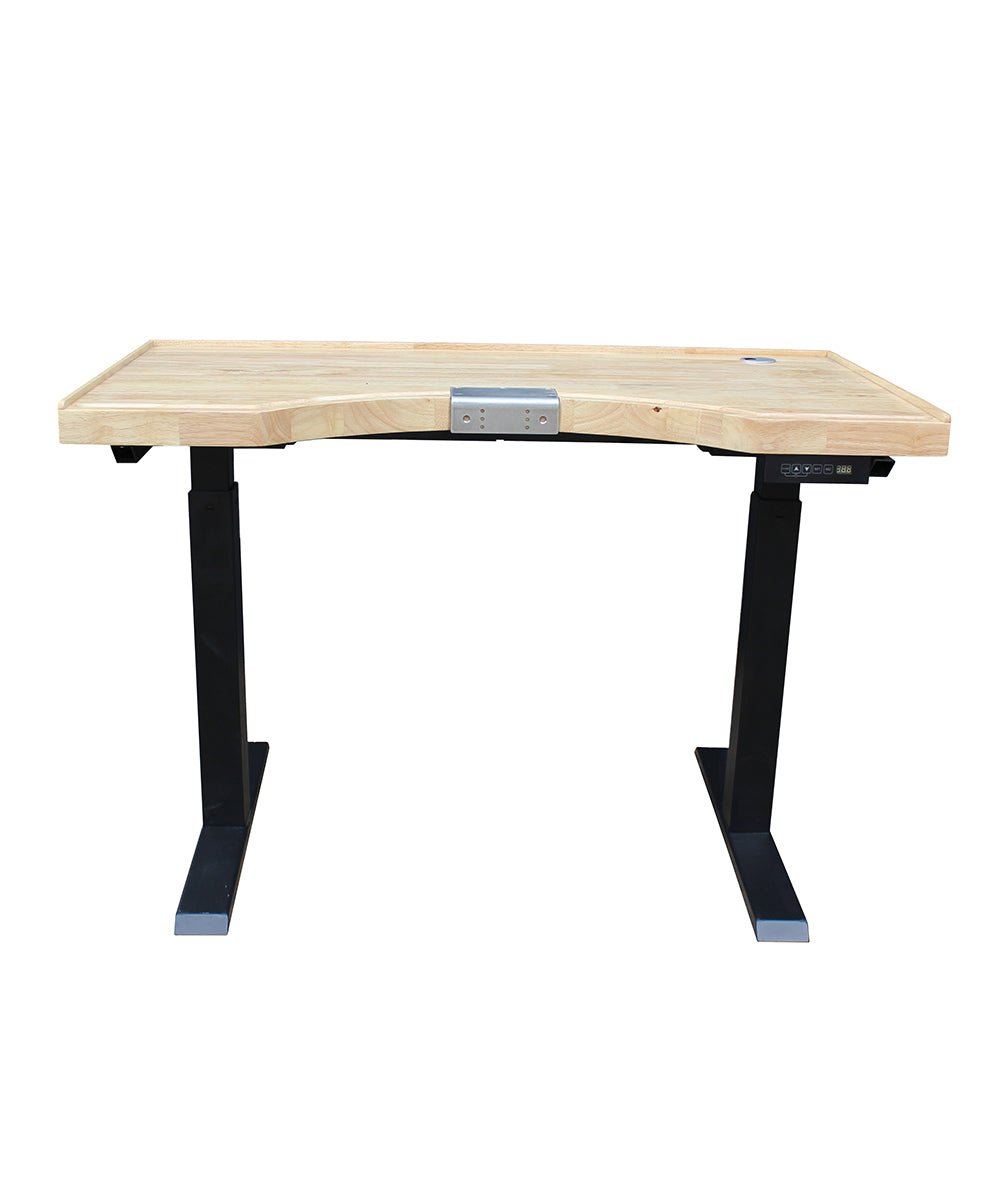
An adjustable bench like this Durston model can help you find the perfect working position. Its electric adjustment feature allows for easy transitions between sitting and standing, promoting better posture and reducing fatigue.
6. How Much Should You Spend?
Jeweler's benches come in a wide range of prices. Here's a quick breakdown:
| Price Range | Cost | Popularity | Key Features | Status |
|---|---|---|---|---|
| Entry-level benches | £300-£800 | 25% | Basic stability, limited storage | Basic |
| Mid-range benches | £800-£2,000 | 60% | Good stability, 3-5 drawers, semi-circular cutout | Popular |
| High-end custom benches | £2,000-£5,000+ | 15% | Premium stability, customized storage, ergonomic design | Premium |
Remember, a bench is an investment in your craft. Spending a bit more can get you a bench that will last for years and help you work better. Consider your current needs and future growth when deciding on your budget.
For beginners, an entry-level bench might be sufficient to start with. As you develop your skills and business, you can upgrade to a more advanced model. Professional jewelers often find that high-end benches pay for themselves through increased productivity and comfort.
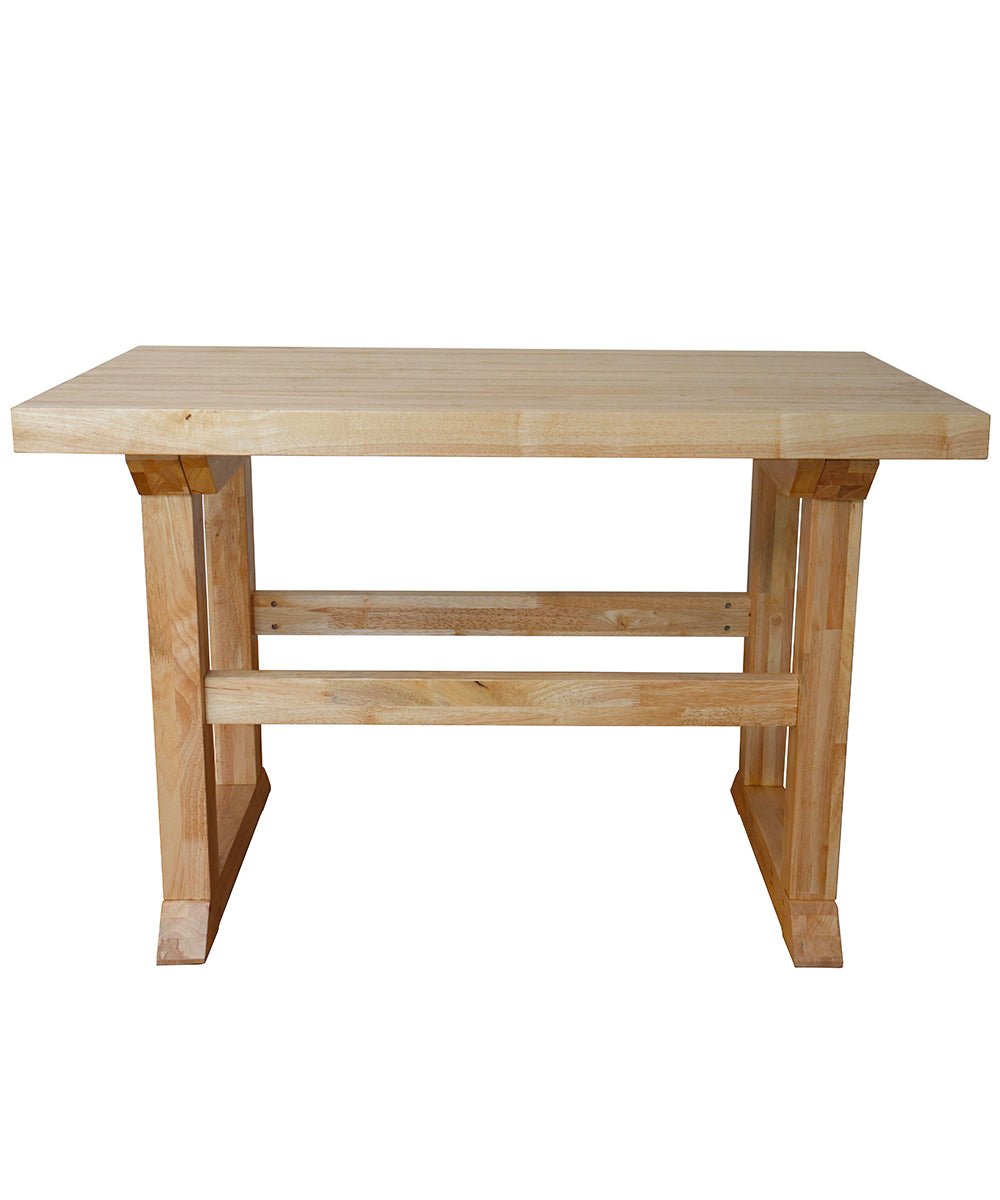
The Durston Titan Workbench is a high-end option that offers durability and excellent features. Its robust construction and advanced design make it suitable for professional jewelers who require top-tier equipment.
7. Staying Safe at Your Bench
Safety is super important when you're working with tools and chemicals. Here are some things to look for:
- Good ventilation: This can cut down harmful fumes by 90%, according to OSHA. Consider a bench with built-in ventilation or space for a portable system.
- Catch tray: This keeps metal bits from falling on the floor where you might slip on them. It also helps in recovering precious metal scraps.
- Side rails: These stop your tools from rolling off the bench, preventing potential injuries and loss of equipment.
- Fire-resistant materials: Especially important if you do soldering or other heat-based work.
- Sturdy construction: Ensures the bench won't collapse or tip over during use.
- Proper electrical setup: If your bench includes electrical components, ensure they're properly grounded and protected.
Remember, a safe workspace is crucial not just for your well-being, but also for the quality of your work. Regular safety checks and maintenance of your bench and tools should be part of your routine.
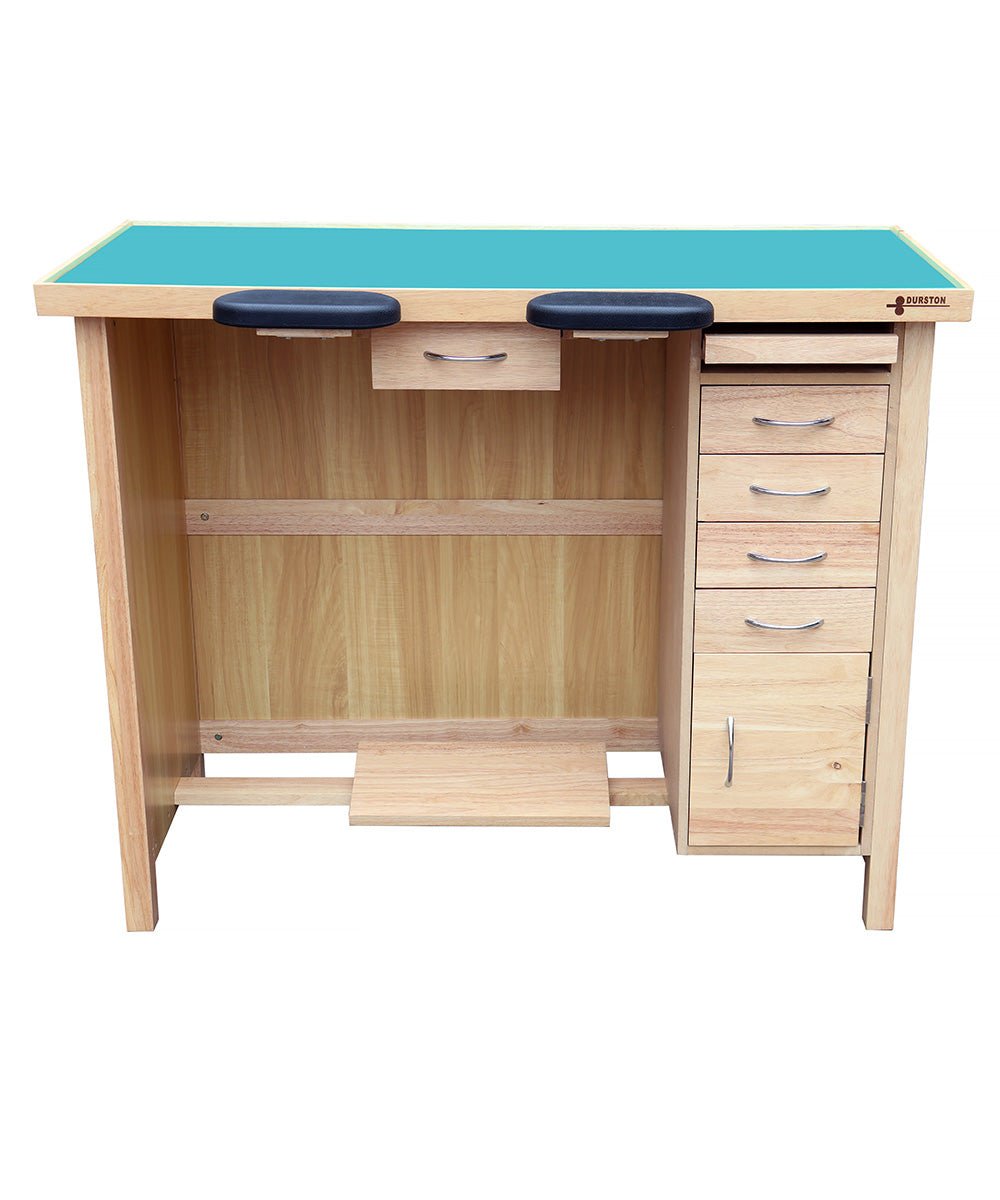
Watchmaker's benches like this Durston model often have great safety features that jewelers can benefit from too. Their design often incorporates elements that enhance precision work while maintaining safety standards.
8. Bench Accessories You Might Need
Your bench is just the start. Here are some extras that can make your work easier:
- Tool organizers: Keep everything neat and easy to find. This can significantly reduce your working time and frustration.
- Bench pin: This is for sawing and filing. It's super important! Look for ones that are easily replaceable as they wear down.
- Armrests: These can help you work longer without getting tired. They're especially useful for detailed work.
- Task lighting: Adjustable lamps can provide focused light where you need it most.
- Magnification systems: From simple loupes to more complex microscopes, these can be essential for detailed work.
- Dust collection systems: These help keep your workspace clean and protect your lungs from fine particles.
Consider which accessories will benefit your specific type of jewelry work. While some are universal, others might be more relevant to certain specialties within jewelry making.
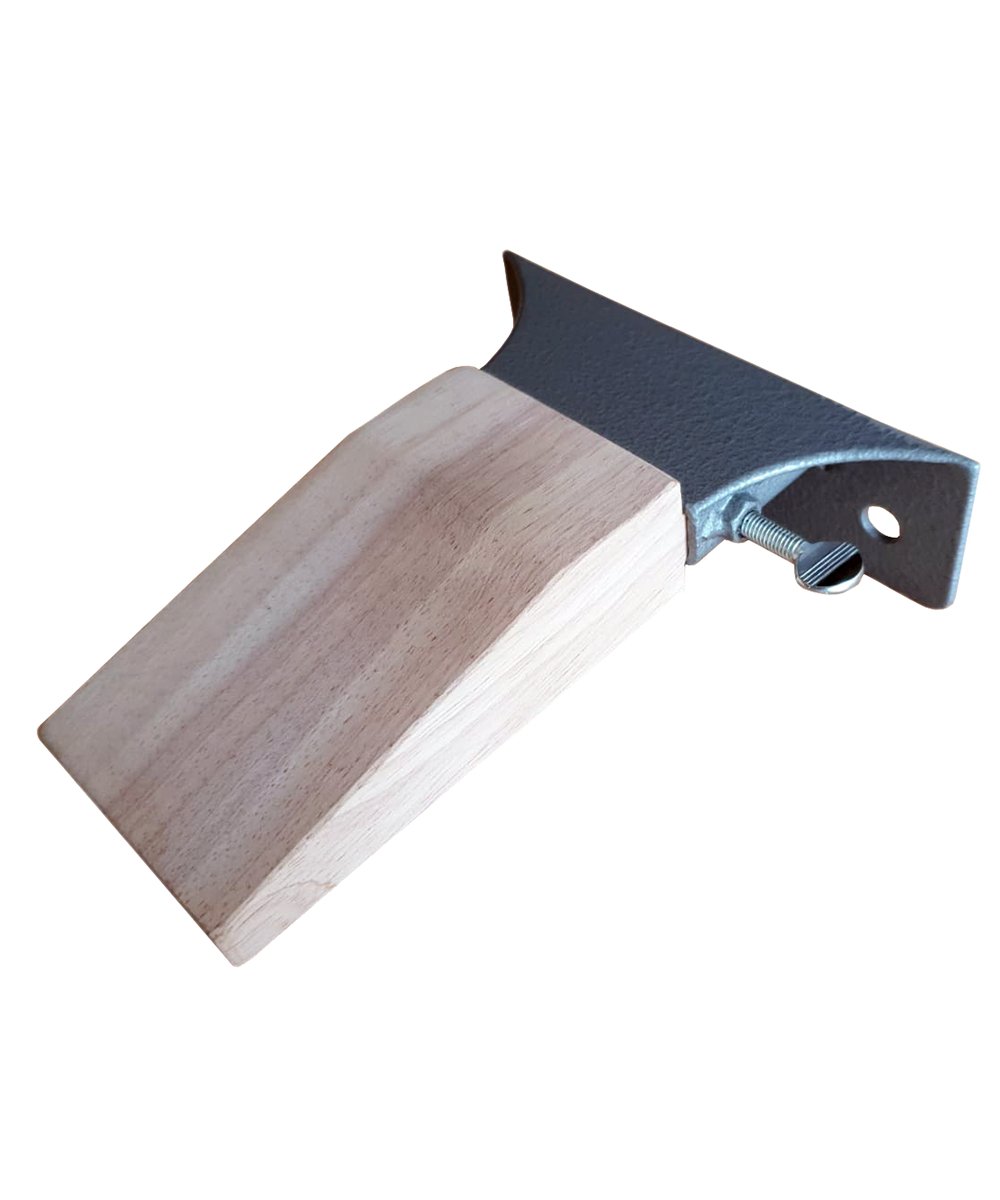
A bench peg like this one is essential for many jewelry-making tasks. It provides a stable surface for sawing, filing, and other detailed work.
9. Taking Care of Your Bench
Once you have your perfect bench, you'll want to keep it in great shape. Here's how:
- Clean it regularly: Wipe it down daily and do a deep clean weekly. This prevents build-up of dust and debris that can affect your work.
- Check it often: Look for loose screws or wobbly parts and fix them right away. This maintains stability and prevents accidents.
- Upgrade when needed: As your skills grow, you might need to add new features to your bench. Don't hesitate to modify your setup to suit your evolving needs.
- Protect the surface: Use mats or covers to prevent scratches and damage from tools and chemicals.
- Maintain your tools: Well-maintained tools not only work better but also cause less wear on your bench.
- Address spills immediately: Especially important for wooden benches to prevent warping or staining.
Regular maintenance not only extends the life of your bench but also ensures it remains a safe and efficient workspace. Think of it as an investment in your craft and your health.
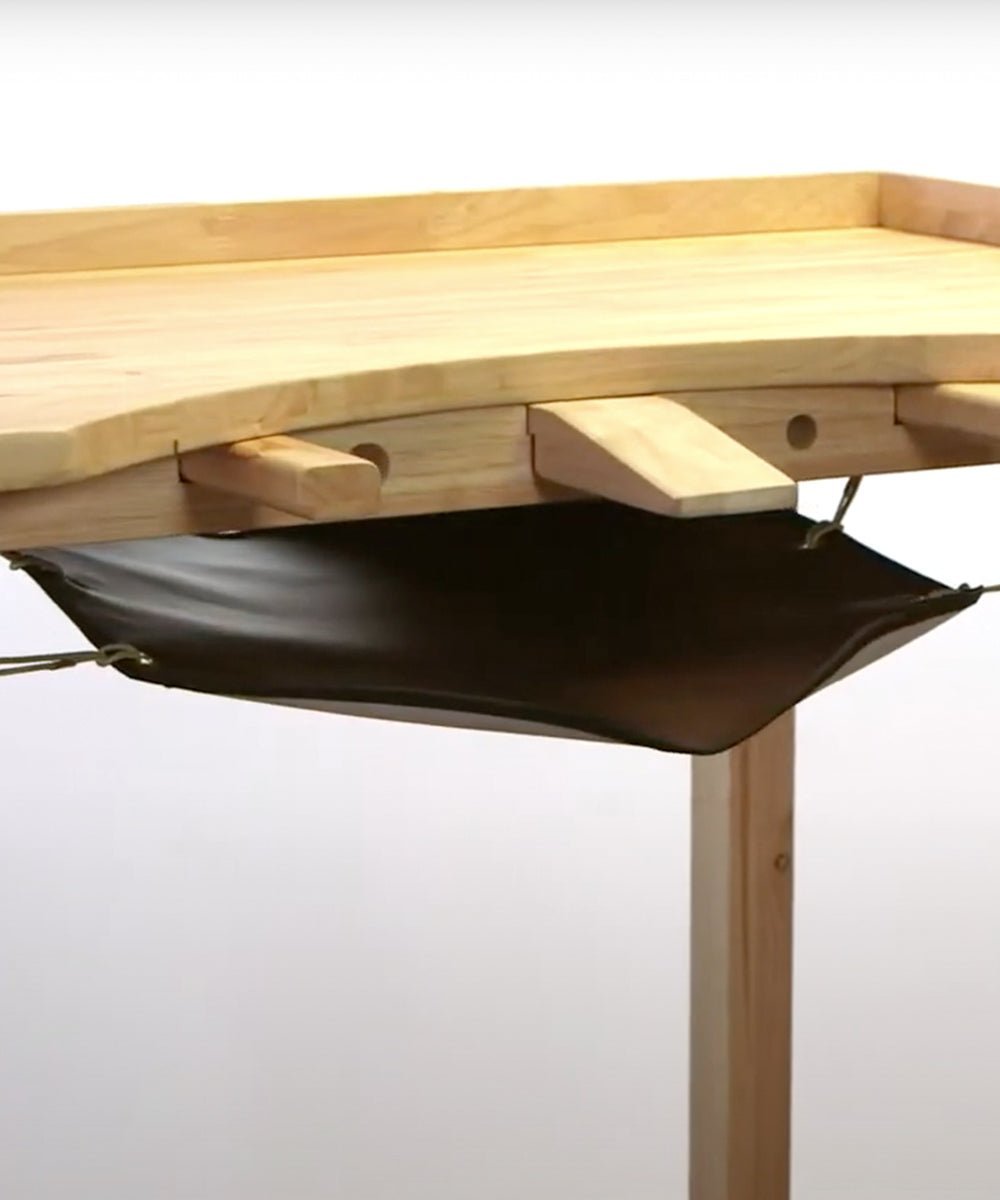
Using an apron like this can help keep your bench (and your clothes) clean while you work. It's a simple but effective tool for maintaining a tidy workspace.
10. Wrapping Up: Your Perfect Bench Awaits
Choosing a jeweler's bench is a big decision, but now you have all the info you need to make the right choice. Remember:
- Pick a bench that fits your body and your work style. Comfort and efficiency go hand in hand.
- Don't skimp on quality - a good bench is worth the investment. It's the foundation of your craft.
- Think about safety and comfort as well as functionality. Your health is as important as your work.
- Set up your workspace to help you be as productive as possible. An organized space leads to organized thoughts and better creations.
- Consider your future needs. Choose a bench that can grow with your skills and business.
- Remember that your bench is personal. What works for one jeweler might not work for another, so trust your instincts.
With the right bench, you'll be all set to create amazing jewelry. It's not just a piece of furniture; it's the launchpad for your creativity and craftsmanship. Happy crafting!
Explore our jewelry-making supplies to complete your workshop setup and start your journey in jewelry making or take your craft to the next level.

